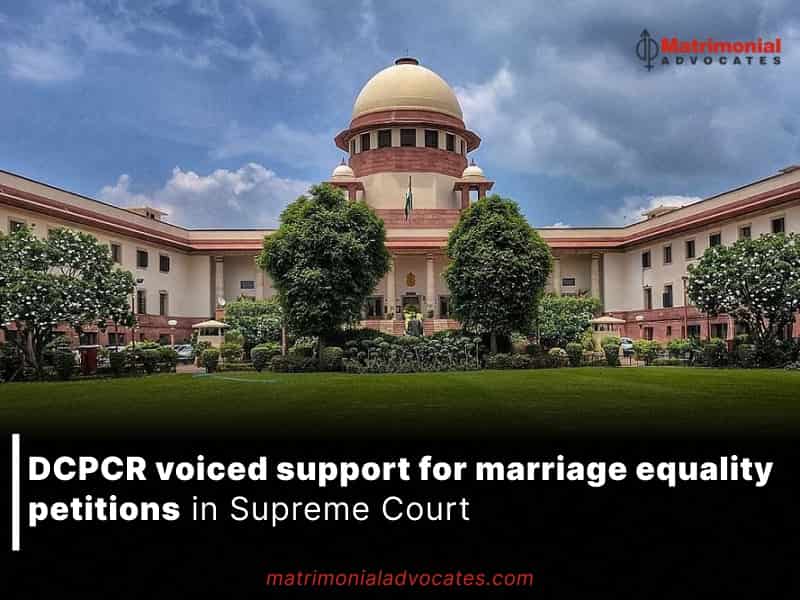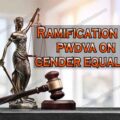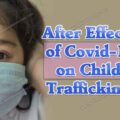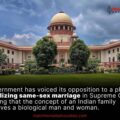
The Delhi Commission for Protection of Child Rights (DCPCR) has submitted an intervention application in the ongoing cases before a Constitution bench of the Supreme Court seeking legal recognition of same-sex marriages in India. The DCPCR, which is a statutory body established under the Commission for Protection of Child Rights Act, 2005, claims to have 15 years of collective experience in dealing with child rights issues.
The application argues that the DCPCR can provide valuable assistance to the Supreme Court by informing them about the potential impact of same-sex marriages on children. The hearing for these cases is scheduled to take place on April 18, 2023.
The application addresses several concerns related to same-sex marriages and adoption while expressing support for these issues.
The application addresses the concern of the psychological impact on children who are raised in households with same-sex parents. It begins by stating that multiple studies on same-sex parenting have demonstrated that same-sex couples can be good or poor parents, just like heterosexual parents. The application emphasizes that there is no inherent advantage or disadvantage for same-sex couples in parenting compared to heterosexual couples.
To support its argument, the application cites examples of several countries that have legalized same-sex marriage and adoption, including more than 50 countries that allow same-sex couples to legally adopt children.
The application also addresses the concern that legalizing same-sex marriages could lead to gendered language used in statutes creating issues for same-sex couples. However, the application argues that this would not present a serious concern. It further explains that due to the patriarchal nature of Indian society, the legislature has enacted many safeguards to address social vices that disadvantage women. These safeguards include legislation such as the Domestic Violence Act, 2005, Dowry Prohibition Act 1961, and certain provisions of the Hindu Marriage Act, 1956, the Special Marriage Act, 1954, and the Indian Divorce Act, 1869, which grant special grounds for divorce exclusively to women.
The application further suggests that a gender-neutral approach may be necessary for issues such as domestic violence, maintenance, and custody in same-sex marriages. The application notes that unlike heterosexual marriages, where one spouse may hold a dominant position over the other, the power dynamics between spouses in same-sex marriages are less likely to be tilted to either side. While issues of domestic violence and the need for maintenance and custody may still arise, the application suggests that a gender-neutral approach would be appropriate.
The application emphasizes the significance of recognizing same-sex marriages in creating a non-discriminatory environment for children to grow up in. It argues that in a socio-legal environment where individuals with homosexual orientations do not enjoy the same legal rights as their heterosexual counterparts, adolescents who develop homosexual orientations may develop adverse psychological complexes, low self-esteem, and other mental health issues.
The application further suggests that unless equal rights are accorded to homosexuals, their acceptance, assimilation, and legitimacy will remain uncertain. This could have a negative impact on adolescents as well. The application cites jurisprudence from other constitutional courts and proposes guidelines that the Supreme Court may consider issuing.
The DCPCR recommends several guidelines for the Supreme Court to consider, including:
- Directing the central and state governments to raise public awareness that same-sex families are just as “normal” as heterosexual families and that children in such families are not “incomplete” in any way.
- Directing school boards and educational institutions to proactively normalize same-sex families in classroom contexts where related issues are discussed.
- Instructing the National and State Council for Education Research and Training (N/SCERT) to remove any homophobic content from school textbooks.
- Instructing the N/SCERT to revise or reimagine passages, caricatures, diagrams, and references to family to include a more diverse understanding of family and to feature homosexual couples as examples of a family.
- Directing the relevant authorities to establish dedicated helplines for children facing stigma or bullying due to their belonging to a same-sex family.
- Directing the relevant authorities to allocate resources and create infrastructure for counseling and psychological assistance to children who are being bullied or victimized because they belong to same-sex families.
Source: https://www.livelaw.in/top-stories/dcpcr-supports-marriage-equality-petitions-in-supreme-court-says-govt-should-create-awareness-that-same-sex-marriages-are-normal-225709





